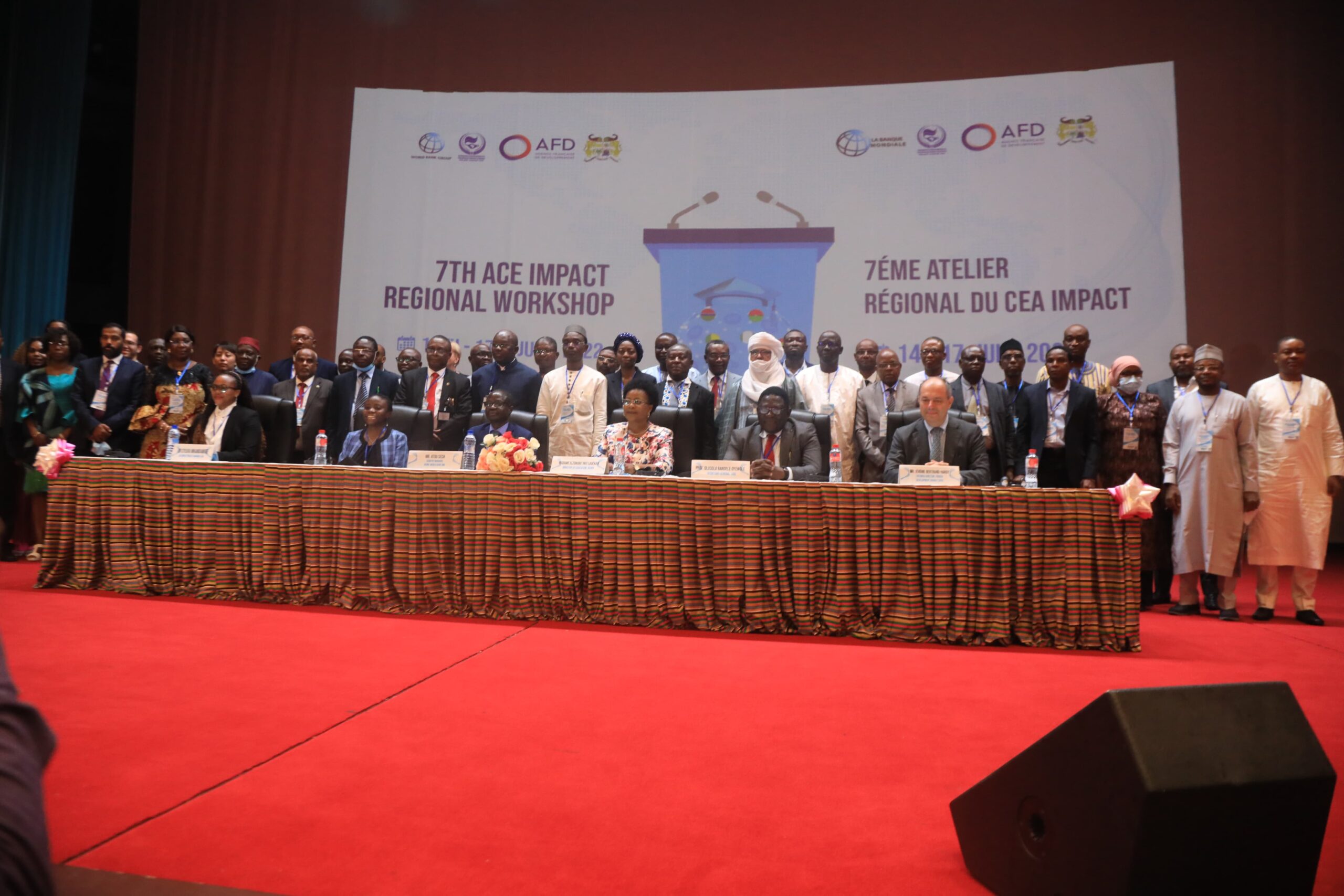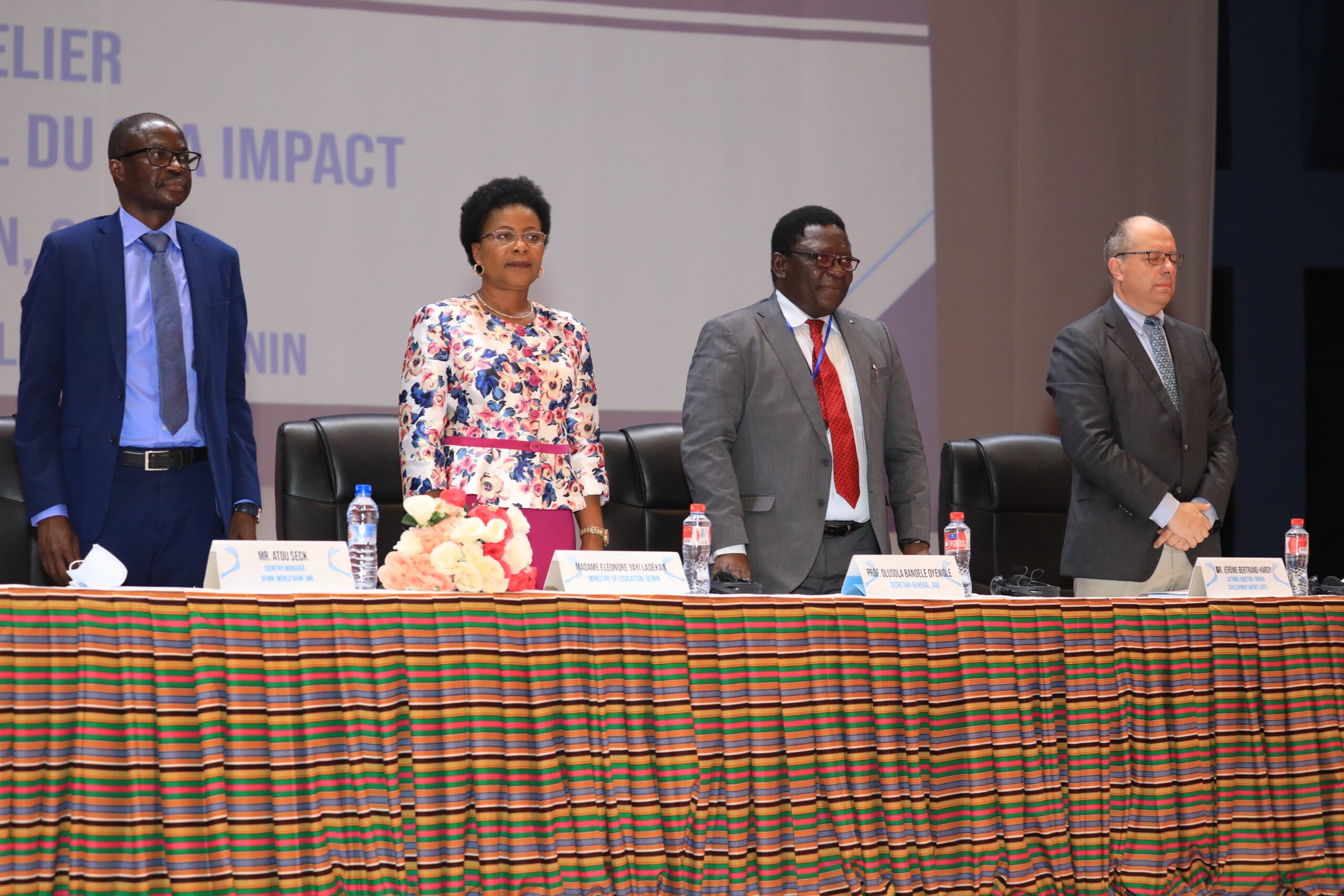A four-day higher education regional workshop, which brought together approximately 300 higher education stakeholders from Africa and beyond, was held in Cotonou, Benin. The workshop was hosted by the Africa Higher Education Centers of Excellence for Development Impact (ACE Impact) Project from 14 -17, June 2022.
In attendance were team members from the 53 centres of excellence from the 11 participating African Countries, Project teams from the World Bank, French Development Agency, and the Association of African Universities, Subject Matter Experts, Vice Chancellors, Students, Industry partners and other various higher education stakeholders.

The workshop created the dynamic platform for multi-stakeholder dialogue and an opportunity for sharing global best practices, provision of implementation support and the discussion of practical mechanisms to ensure sustainability of the project beyond its stipulated lifespan. It also provided the chance for collaborative regional knowledge sharing on all the thematic subject areas of the project, as well as to assess the results from the project’s mid-term review process.
ACE Impact is a World Bank initiative in collaboration with governments of 11 participating African countries to support higher education institutions specializing in Science, Technology, Engineering and Mathematics (STEM), Environment, Agriculture, applied Social Sciences / Education and Health. It is widely recognised as a critical and important project which is improving the capacity of Africa’s higher education institutions.
The 7th ACE Impact workshop started on a high note with an opening ceremony which featured key remarks from the Secretary General of the Association of African Universities – Prof. Olusola Oyewole; the Cotonou Director of the French Development Agency, Mr. Jerome Bertrand-Hardy, and the World Bank Country Manager, Mr. Atou Seck.
Formally opening the workshop, the Minister of Education for Benin, Madame Eleonore Yayi Ladekan spoke highly about the importance of the ACE Impact project to Africa’s higher education system and recognised the efforts of the project team and all participating centres and countries. She highlighted various reforms launched by the Republic of Benin aimed at impacting all stakeholders in the education pipeline – right from the learners/students to the national level and final beneficiaries. She further underscored the quality of interventions and key activities under the project – including internships, training of students, and innovative research which she said are all important in facilitating knowledge generation and usage, as well as ensuring that excellence transcends the functions of Africa’s Higher Education institution.
The 7th ACE Impact workshop has a diverse agenda and focus areas to be discussed at plenary, breakout sessions and performance clinics. The event also featured a special poster presentation session which created the platform for students to present their innovative research to the African higher education stakeholders present at the workshop. Prior to the Workshop, the project began hosting Country Round Table sessions, which presented the opportunity for country specific discussions related to the mid-term review process. Again, the Project Steering Committee (PSC) meeting was held on 13th June 2022, also in Cotonou, Benin. The PSC is a high-level policy making committee comprised of representatives of African government from the 11 participating countries, the World Bank, French Development Agency and the Association of African Universities.

A press conference was also hosted just before the opening ceremony on June 14, creating the platform for the media to engage the key project team on critical issues in Africa’s Higher Education, for the information of the wider African populace.
Discussions for the remaining three days (June 15-17, 2022) focused on forging the way forward in relation to specific project priority areas including – Digital Transformation, Entrepreneurship and Innovation, Gender and Development Impact among others.
Written By: Mrs. Felicia Kuagbedzi, Senior Communications Officer, AAU
